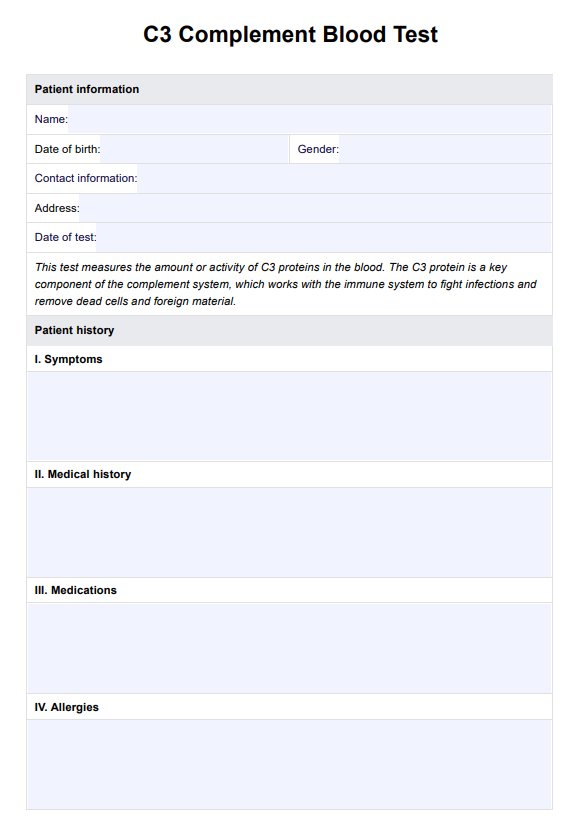The C3 Complement Blood Test evaluates the level or activity of the complement component C3 to help diagnose immune deficiencies, autoimmune diseases, chronic infections, and monitor conditions like kidney disease. It assists medical professionals in understanding the immune system’s function and inflammatory responses.

C3 Complement Blood
Discover the power of a C3 Complement Blood Test, and gain valuable insights to stay on top of your well-being.
Use Template
C3 Complement Blood Template
Commonly asked questions
In systemic lupus erythematosus (SLE), C3 levels are typically low due to complement consumption during immune complex formation. Monitoring C3 helps assess disease activity and treatment effectiveness in lupus patients.
Elevated C3 and C4 levels may indicate acute inflammation, infections, or conditions like obesity and diabetes. High levels are nonspecific but signal an activated immune response that requires further evaluation.
EHR and practice management software
Get started for free
*No credit card required
Free
$0/usd
Unlimited clients
Telehealth
1GB of storage
Client portal text
Automated billing and online payments











